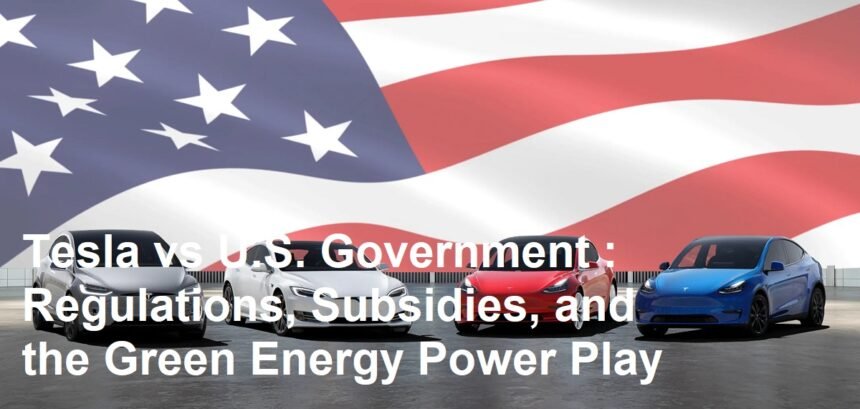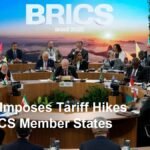Introduction: Why Tesla vs U.S. Government Matters
When people think of electric cars, Tesla often comes to mind first. But behind the innovation and sleek designs, there’s an ongoing tug-of-war: Tesla vs U.S. government. This battle isn’t just about cars—it’s about regulations, subsidies, and the broader politics of green energy.
If you’ve ever wondered how policies like EV subsidies in America or Biden’s automotive regulations affect Tesla and the electric vehicle industry, this article breaks it down for you.
The Roots of the Tesla vs U.S. Government Tension
Tesla is a pioneer in the EV world, but its relationship with Washington is complicated. While Tesla helped push the EV revolution forward, government regulations and subsidy structures don’t always work in Elon Musk’s favor.
The Evolution of EV Subsidies in America
- Early support: The U.S. government offered tax credits up to $7,500 for EV buyers, which helped Tesla grow.
- Phase-out rule: Companies that sold over 200,000 EVs lost access to these credits—Tesla being the first to hit that limit.
- Biden’s new subsidies: Current policies favor unionized carmakers, which Tesla isn’t. This creates a political edge for legacy automakers like GM and Ford.
Tip for readers: If you’re considering buying an EV, check if the model still qualifies for federal tax credits. The rules keep changing.
Biden’s Automotive Regulations and Tesla’s Position
The Biden automotive regulations are designed to accelerate EV adoption by setting stricter emissions targets and fuel efficiency standards. But Tesla, ironically, has mixed feelings.
How Biden’s Regulations Impact Tesla
- Positive side: Tougher standards force traditional automakers to go electric faster, reducing Tesla’s competition advantage but boosting overall EV adoption.
- Negative side: Tesla doesn’t benefit as much from regulatory credits anymore since competitors are catching up.
- Political tension: Musk has often criticized the Biden administration for favoring unionized automakers in public announcements and policies.
Tip for readers: If you follow EV stocks, keep an eye on how regulations shift. They can dramatically influence Tesla’s valuation.
The Politics of Green Energy: More Than Just Cars
This isn’t just about Tesla—it’s about America’s broader green energy politics. Transitioning to renewable energy is a massive national project, and Tesla is caught in the middle.
The Green Energy Power Play
- Government’s goal: Achieve net-zero emissions by 2050.
- Tesla’s role: Beyond cars, Tesla pushes solar energy and battery storage, which align with these goals.
- Conflict: Tesla’s independence and Musk’s outspoken stance often clash with Washington’s political narrative.
Tip for readers: For investors, this is bigger than cars. Look at Tesla’s energy business—solar panels, Powerwall, and Megapack—since U.S. energy policy will play a big role in growth.
Why This Battle Matters to Everyday Consumers
At first glance, Tesla vs government might feel like billionaire drama. But these policies trickle down to consumers:
- EV prices: Subsidies affect how much you’ll pay at the dealership.
- Charging infrastructure: Government funding accelerates EV charging expansion, which benefits all drivers.
- Energy bills: Tesla’s energy products could eventually help households save money as green policies expand.
Tip for readers: If you’re planning to switch to an EV in the next 5 years, follow subsidy updates closely. The savings could be significant.
The Road Ahead: Cooperation or Conflict?
The tension between Tesla and Washington likely won’t disappear. But will it lead to more cooperation or more clashes?
Possible Scenarios
- Collaboration wins: Tesla and the U.S. government align on clean energy goals, creating a win-win.
- Policy battles continue: Subsidies and union politics keep Tesla at odds with regulators.
- New players rise: As Ford, GM, and startups scale EV production, Tesla may face tougher competition—especially if government subsidies favor them.
Tip for readers: Stay informed. Policies can change quickly with elections, and the future of EVs will depend heavily on who holds political power.
Conclusion: What It Means for You
The story of Tesla vs U.S. government isn’t just a corporate drama. It’s a reflection of how policy, innovation, and politics shape the future of clean energy.
As EV adoption grows, expect more headlines about subsidies, regulations, and political debates. But also, remember this: the outcome will affect not just automakers but also consumers, investors, and anyone who cares about sustainability.
What do you think about the Tesla vs U.S. government dynamic? Do you believe subsidies should favor all EV makers equally, or should unionized companies get the edge? Drop your thoughts in the comments below—I’d love to hear your perspective!












